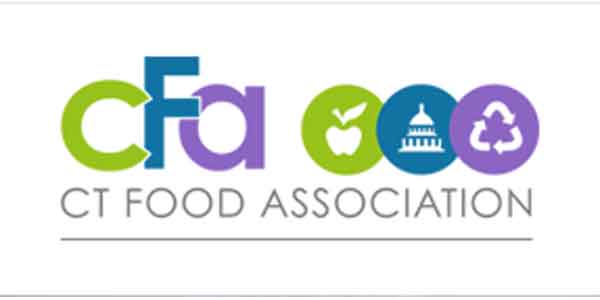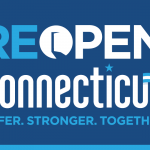As Connecticut and the rest of the country emerges from the pandemic, nobody knows for sure if typical grocery shopping habits — roaming up and down the aisles, looking for cereal and toilet paper, for example — will return to normal.
For some, the sensory experiences of smelling fresh-baked bread and inspecting produce by hand will never be outsourced to an anonymous supermarket worker. Others, however, have grown accustomed to the conveniences of online ordering and home delivery and may never willingly return to stores.
Wayne Pesce, president of the Connecticut Food Association, said that even as the pandemic subsides, he doesn’t see a decline in the popularity of online shopping and home delivery. The Hartford-based trade group represents the state’s grocery store operators, both large and small.
Prior to the pandemic, Pesce said food retailers offering home delivery or curbside pickup for online orders “had an advantage over those who did not.”
“Today, we are seeing a much wider adoption of online services by more food retailers, as delivery companies like Uber eats … step up to fill the void,” Pesce said. “This could mean that, in the future, a larger portion of a store’s space will be set aside for preparing orders to-go—and less for customer traffic. Touchless payment options such as Apple or Google Pay, which consumers have been slow to adopt, are sure to become more popular.”
The pandemic also makes increased automation a reality for companies looking to augment a reduced workforce, according to Pesce. “Less human interaction has become a probable outcome and is both a blessing and a curse for any brick-and-mortar retailer,” he said.
Burt Flickinger, managing director of the Strategic Resource Group, a New York City-based business that does consulting work for retailers, said online grocery shopping was 12 percent of all supermarket sales prior to the start of the pandemic, according to the business services firm KPMG.
“During the pandemic, it accounted for between 35 and 40 percent of all supermarket sales,” Flickinger said. “They think that as the pandemic subsides, that number (of online grocery sales) will settle down to 20 percent.”
As the baby boom generation gets older, however, younger tech-savvy shoppers could drive up the amount of online grocery sales to as much 35 percent of the total.
“There is definitely a line of demarcation,” Flickinger said. “People are starting to experience sticker shock from the prices of eating in restaurants or ordering out bringing food home.”
Another factor that might come into in terms of keeping online grocery shopping higher than pre-pandemic levels: people working from home have spent lavishly on kitchen appliances and new cookbooks in an effort to eat home more often.
Pesce said that as much as the supermarket business changes, “one thing is certain: food shopping will never be the same again.”
That’s especially true in the case of how individuals with limited incomes, like those who are part of the Supplemental Nutrition Assistance program, or SNAP. As recently as a year ago, a to database compiled by state officials, the retail outlets that accept SNAP from what was them 200,000 Connecticut households were mostly small, local markets.
Now, an increasing number of businesses that provide online grocery shopping and delivery either already offer SNAP as payment option or are planning to do so.
Other changes to online shopping in recent years include the ability to order wine, beer and spirits and have them delivered to your home.
Michelle Seagull, the commissioner for the Connecticut Department of Consumer Protection, issued a declaratory ruling in 2018 that allows package stores to deliver wine and spirits to homes if certain requirements. The same ruling allows grocery stores to deliver beer to consumer’s residences, either with or without groceries.
More than a year after the start of the pandemic, there are still a wide variety of consumer options for ordering groceries online and having them delivered to your home.
Here’s a comprehensive look at what you need to know before you order.
Stop & Shop’s Peapod
Stop & Shop’s Peapod home delivery service is currently available in all counties across Connecticut, although home delivery may not be available in certain ZIP codes. Many stores also allow customers to shop online and have their groceries conveniently placed in their vehicles when they park designated spaces.
Home delivery customers can select a window between next-day delivery (available in most ZIP codes) and up to two weeks, though wait times vary by area and demand.
Connecticut customers can order all items that are available in the store with the exception of items restricted by law, including cigarettes, propane tanks and lottery tickets. Pickup and home delivery customers are permitted to purchase alcohol (identification required upon delivery).
Delivery is free for the first 60 days; after that, it’s $6.95 for orders $100.00 and up and $9.95 for orders between $60 and $100, unless the customer orders a subscription (minimum on all orders: $60).
A company spokesperson said Stop & Shop does not currently accept SNAP payments for online grocery orders.
“There are systems updates that need to occur on our end in order to meet the regulatory requirements to make this [SNAP] offering,” Maura O’Brien, Stop & Shop’s spokeswoman, said. “We are working through those processes now and look forward to making this available for our customers soon.”
ShopRite
ShopRite.com offers same-day delivery and pickup options at Connecticut stores, according to Karen O’Shea, a spokeswoman for New Jersey-based Wakefern Food Corp., the largest retailers’ cooperative group of supermarkets, which includes ShopRite.
In New Haven’s 06511 ZIP code, however, delivery was only available through ShopRite of Orange, even though there is also Shop Rite on Dixwell Avenue in Hamden. By contrast, in Cheshire’s 06410 ZIP code, delivery is available from one of three area ShopRite locations in surrounding communities, according to the supermarket chain’s web site.
All in-store items are available for delivery except where prohibited by law. Beer is available for sale online and in-store pickup. See the company’s online shopping portal for further information.
ShopRite officials said online shoppers can use EBT and a variety of online payment methods. There’s also a new online shopping subscription program in Connecticut, according to O’Shea, where customers can receive three months of unlimited grocery pickup for $35.
The subscription applies only to grocery pickups, she said. Standard fees for grocery pickups not involved in the subscription program is $4.99 per order, according to O’Shea.
Delivery fees vary based upon the location of the ShopRite you are ordering from, she said.
Walmart
A number of Walmart locations in Connecticut offer same-day delivery options, including Cromwell, East Windsor, Groton, Hartford, Manchester, Naugatuck, New Haven, North Windham, Wallingford and Waterford, according to the company’s website. There’s a $35 minimum to order but no delivery charge.
For an additional fee, Express Delivery allows customers to order items and receive them in two hours or less.
Consumers can purchase fresh produce, meat, seafood, toiletries and anything else that’s offered in-store, including toys and electronics. Alcohol deliveries are available where allowed by law.
Walmart was one of the first retailers to take part in the USDA’s SNAP Online Purchase pilot, according to company officials, who said access to groceries through no- to low-touch pickup and delivery services shouldn’t be dictated by how you pay. (Customers who use SNAP benefits don’t have to meet Walmart’s usual $35 minimum threshold for their order.)
Whole Foods and Amazon Fresh
Grocery delivery from Whole Foods and Amazon Fresh (not yet available in Connecticut) is limited to a select group of area codes.
New Haven residents in the 06511 ZIP code, for example, can get Whole Foods home delivery, but it’s not available to those living in Cheshire’s 06410 ZIP code, even though the company has a warehouse located there.
Connecticut shoppers should head to the grocery portion of Amazon’s website and enter their ZIP code to find out if they live in an area that’s eligible for home delivery. Wait times vary by region, but customers can schedule deliveries to arrive in one- and two-hour windows.
Customers in many metropolitan areas can make online purchases using SNAP or EBT, according to company officials. Available items include a complete grocery selection, with beer and wine available in select locations.
Instacart
Instacart delivers groceries — sometimes in one hour from a number of Connecticut supermarkets and retailers, including Big Y, Aldi, Stop & Shop, the Fresh Market, ShopRite, BJs, Costco, Price Chopper and Stew Leonard’s. Customers should visit instacart.com/grocery-delivery/near-me-in-connecticut and enter their ZIP codes for more information.
Instacart handles grocery orders and deliveries for Price Chopper/Market32, which has nine Connecticut locations, and accepts SNAP/EBT only at these stores and Aldi. Instacart also handles alcohol delivery and pickup in Connecticut.
Delivery fees start at $3.99 for same-day orders over $35, but increase for one-hour deliveries and orders under $35, according to the company website. (There may also be a fee on pickup orders.) Instacart also charges services fees based on location and the number and types of items in your cart. (Orders with alcohol have a separate service fee.)
Fresh Direct
FreshDirect delivers to Darien, Fairfield, Greenwich, New Canaan, Norwalk, Stamford and Westport. Customers can place orders for next-day delivery or up to a week in advance; express delivery (within 60 minutes) is also available.
Fresh Direct has a $30 minimum order in Fairfield County and a delivery fee of $6.99. Available products include a full range of produce, meats, dairy, bakery items, prepared foods, frozen foods, beer, wine, spirits and cider. SNAP/EBT are not accepted as forms of payment.
Imperfect Foods
Connecticut is one of more than 20 states serviced by Imperfect Foods, which sells food with “cosmetic quirks, irregular sizes, or… just surplus, which meant they used to go to waste or get undervalued,” according to the company’s website.
The service allows customers to choose the groceries they want each week, but it also places items in your “cart” that it thinks you will like. (You can remove them as needed.) Shoppers must create an account and supply an email address to find out if Imperfect Foods delivers to their areas. Groceries arrive during the customer’s “delivery window,” which is based on their area’s delivery day.
Boxes are left in safe areas if the shopper isn’t home. (A confirmation email or text message lets you know when a delivery is made.)
Imperfect Foods prices all of its items individually, just like a regular grocery store. There’s a delivery fee of between $4.99-$8.99 depending on the area.


